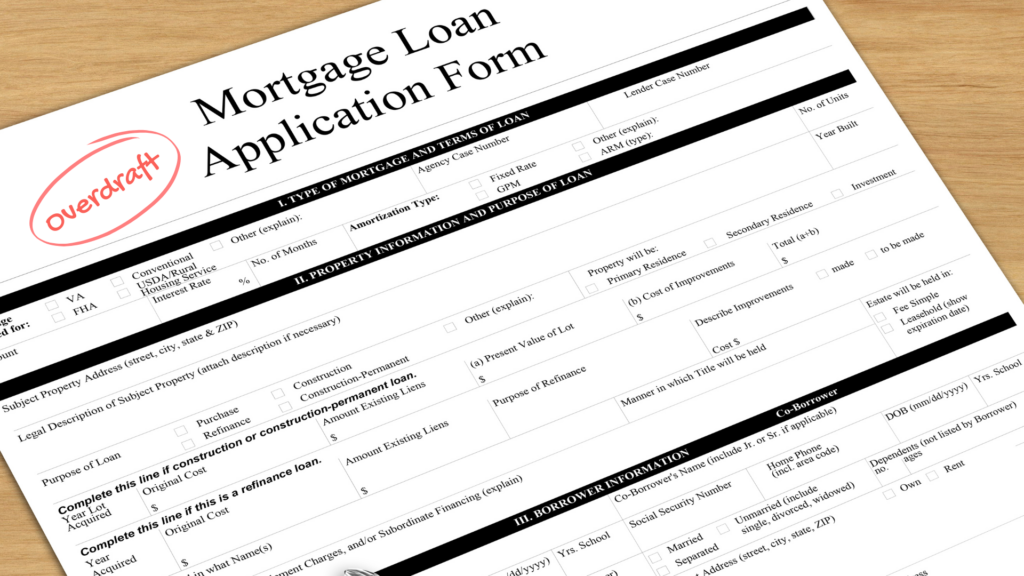What Mortgage Can You Get For £600 A Month?

Everyday costs add up quickly.
With rising bills for utilities, groceries, childcare, and more, it’s easy to see why your budget might be stretched thin.
If £600 a month is all you can afford for a mortgage, you’re certainly not alone.
Many people face the same challenge of balancing living expenses with the desire to own a home.
In this guide, we’ll explain what a £600 monthly mortgage can get you, how lenders assess your mortgage affordability, and tips to help you make the most of your budget.
What Mortgage Can I Get for £600 a Month in the UK?
Your monthly mortgage payment isn’t the only thing that determines how much you can borrow.
While you can generally expect to borrow between £130,000 and £170,000 with a £600 monthly payment, there are other important factors to consider.
The amount you can borrow depends on:
- Interest rates: The cost of borrowing money.
- Mortgage term: How long you’ll take to repay the loan.
- Your deposit: The upfront payment you make.
For example, with a 2.5% interest rate and a 25-year term, a £600 monthly payment might get you a mortgage of around £150,000.
However, if you extend the term to 30 years, you could potentially borrow closer to £170,000.
Remember, your overall financial situation, such as your income and credit score, also plays a role in how much you can borrow.
Example Calculations
To give you an idea of what you might be able to borrow, here are some examples:
| Monthly Repayment | Interest Rate | Mortgage Term | Mortgage Amount |
| £600 | 2.5% | 25 years | £150,000 |
| £600 | 3.5% | 25 years | £133,000 |
Impact of Interest Rate
| Monthly Repayment | Interest Rate | Mortgage Term | Mortgage Amount |
| £600 | 2.5% | 25 years | £150,000 |
| £600 | 2.5% | 30 years | £170,000 |
Impact of Mortgage Term(Same Interest Rate)
As you can see, even small changes in the interest rate or how long you take to pay back the mortgage can make a big difference to how much you can borrow.
To get a better idea of what you can afford, try our mortgage calculator. It shows your monthly repayments based on the loan amount, interest rate, and mortgage term.
How Lenders Calculate What Mortgage I Can Get for £600 a Month?
Lenders decide how much you can borrow based on several factors. One key factor is your income.
Income multiples.
Most lenders will multiply your annual income by a number, usually between 4 and 4.5, to determine a maximum loan amount.
For example, if you earn £30,000 a year, you might be able to borrow up to £135,000.
Higher multiples.
Some lenders offer higher multiples, often up to 5 or 6 times your income, especially if you have a good credit history and a stable job.
Remember: Your income is just one part of the picture. Other factors, like your deposit and spending habits, also affect how much you can borrow.
What Factors Affect Your Mortgage Affordability?
When you’re working out how much you can borrow for a mortgage, lenders consider more than just your income and what you can afford to pay each month.
Here’s a breakdown of what matters most:
Deposit Size
The bigger your deposit, the better. This is because you’ll need to borrow less money, which can help you get a better interest rate on your mortgage.
Ideally, you’d want to save up 15% of the property’s price, but don’t worry if that’s not possible.
Lots of lenders will let you borrow with a deposit as small as 10% or even 5%.
However, a smaller deposit might mean you end up paying more interest, especially if your credit score isn’t great.
Also, some types of property, like flats or new-build homes, might need a bigger deposit.
Credit History
Your credit history is really important when you’re applying for a mortgage. Lenders use it to see how good you are at managing money.
If you’ve got a good credit score, you’re more likely to get a better deal on your mortgage.
But if your credit score isn’t great, you might end up paying higher interest rates or needing a bigger deposit.
It’s a good idea to check your credit report before you apply for a mortgage so you know what’s on there and can fix any problems.
Employment and Income Stability
Lenders like to see that you have a steady job because it shows you can reliably pay your mortgage.
If your job is self-employed or your income changes a lot, you might face some extra questions.
Don’t worry though, there are lenders who specialise in helping people in your situation.
How long you’ve been in your current job also matters. The longer you’ve been there, the better.
Profession
Your job can also make a difference when it comes to getting a mortgage. Jobs in areas like teaching or nursing are often seen as stable, which can help you get a better deal on your mortgage.
If you work in a job that’s considered less stable, you might find it harder to get a mortgage or you could end up paying a higher interest rate.
Age
Your age can influence your mortgage options, especially when it comes to the length of the loan.
Lenders have age limits both when you apply and for when the mortgage term ends.
If you’re closer to retirement, it might be harder to get a long-term mortgage, which could limit how much you can borrow.
Older applicants might also get shorter mortgage terms, leading to higher monthly payments.
Debt-to-Income Ratio
Lenders look at how much you owe compared to how much you earn each month. This is called your debt-to-income ratio.
If you owe a lot compared to what you earn, it might be harder to get a mortgage.
Most lenders like to see that less than 36% of your income goes towards paying off debts.
But if you have a good credit score and other things look good, you might be able to borrow even if you owe a bit more.
Property Type and Location
The type of property you’re buying and where it’s located can also impact your mortgage.
Different property types, like new builds or flats, can come with different lending rules.
The location matters too—if the property is in an area with declining markets or high flood risks, it might be seen as higher risk, which could affect your mortgage terms.
Interest Rates and Market Conditions
Current interest rates and market conditions also play a part in how much you can borrow.
If interest rates are low, you can borrow more for the same monthly payment. But if rates go up, your borrowing power might shrink.
Market conditions, like housing supply and demand, can also affect property prices and how much you’ll need to borrow.
Keeping an eye on market trends and working with a mortgage broker can help you get the best deal.
Lender-Specific Criteria
Finally, each lender has its own way of assessing mortgage applications.
These criteria can vary, so it’s worth shopping around and comparing offers from different lenders.
Things like your relationship with the lender, portfolio size, and their risk appetite can all influence the terms you’re offered.
A mortgage broker can help you figure out which lender is best for you.
How a Broker Can Help You Get the Best Deal
Finding the right mortgage can be tricky, especially if you’re trying to stick to a £600-a-month budget.
That’s where a good mortgage broker can be a lifesaver.
Whole-of-market brokers have access to a wide range of lenders and can find those who are most likely to offer you the best terms.
They’ll help you put together a strong application, which could mean getting a larger mortgage or a better interest rate.
If you’re self-employed, a broker can connect you with lenders who are more flexible about income verification.
And if you have bad credit, they can point you towards lenders that specialise in bad credit mortgages.
Key Takeaways
- A £600 monthly payment can usually get you a mortgage between £130,000 and £170,000, based on rates, term, and deposit size.
- Lenders use 4 to 4.5 times your income to decide how much you can borrow; higher multiples are possible with good credit and a stable job.
- A bigger deposit and strong credit can get you better rates, while smaller deposits or bad credit might mean higher costs.
- Steady jobs and certain careers, like teaching, can help, but self-employed people might face tougher checks.
- Lenders like a debt-to-income ratio below 36%, and your loan amount may change based on the property’s type and location.
The Bottom Line
Getting a mortgage for £600 a month is possible, but what you can actually borrow depends on a few things.
Your income, how much you can save for a deposit, your credit score, and the type of mortgage you get all matter.
Working with a mortgage broker can further enhance your chances of securing a mortgage that meets your needs and fits your budget.
Get Matched With Your Dream Mortgage Advisor...

Frequently asked questions
Can I get a mortgage for £600 a month with bad credit?
Yes, but your options may be limited. Some lenders specialise in bad credit mortgages, though you might face higher interest rates. Working with a broker can help you find the right lender.
Is it harder to get a mortgage if I'm self-employed?
It can be, as lenders may view self-employment as less stable. However, some lenders specialise in mortgages for self-employed individuals, and a broker can help you find the best options.
What if I'm close to retirement?
If you’re near retirement, your mortgage options may be limited by age restrictions on mortgage terms. Lenders will assess your ability to repay the loan during retirement.
Can I use a £600 a month mortgage for a buy-to-let property?
Yes, it’s possible, but you’ll need to meet specific criteria, such as a 25% deposit and proof of sufficient income.
Most buy-to-let mortgages are interest-only, so you’ll need a plan to repay the full loan at the end of the term.




